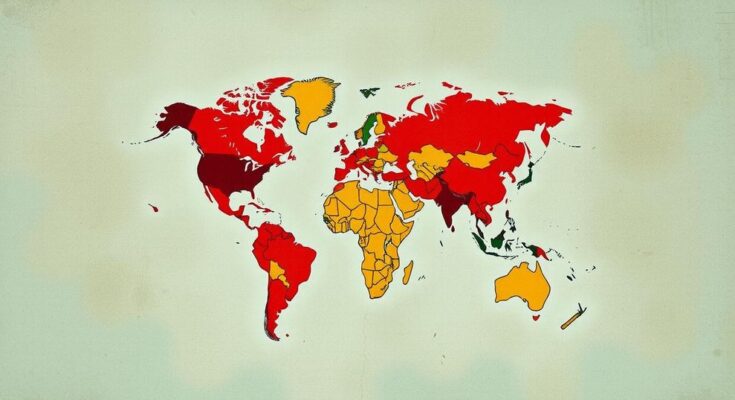The article highlights recent humanitarian efforts in Ukraine, where UN officials expressed solidarity with citizens enduring Russian attacks. It also acknowledges the UN’s remembrance of Haiti’s earthquake victims and reports on an $82 million initiative aimed at improving Sudan’s healthcare system, severely impacted by conflict, underscoring the ongoing need for global support and intervention.
In the face of ongoing conflicts, the international community remains engaged in various humanitarian efforts. Recently, the United Nations’ top aid official, Tom Fletcher, visited Ukraine to express solidarity with its citizens affected by continuous Russian assaults. During his tour in Zaporizhzhya, he highlighted the dire impacts of airstrikes on civilian life, including the destruction of a medical clinic and the necessity of building schools underground for safety. Moreover, Fletcher noted the resilience of local communities and the need for increased international support as he prepares to launch humanitarian plans for 2025 alongside UNHCR officials in Kharkiv.
Additionally, UN Secretary-General António Guterres commemorated the victims of the devastating 2010 Haiti earthquake, acknowledging the ongoing challenges faced by the populace. The disaster profoundly affected three million individuals, necessitating the UN’s enduring commitment to address their needs and support recovery efforts. A ceremony in Port-au-Prince honored those who lost their lives, including 102 UN staff members, reinforcing the UN’s mission to aid the Haitian people.
Meanwhile, the World Bank, WHO, and UNICEF have initiated an $82 million funding agreement aimed at restoring Sudan’s healthcare system, devastated by conflict. With a staggering 70% of medical facilities non-operational and health workers unpaid for months, this agreement seeks to provide essential services to over eight million people. As disease outbreaks threaten vulnerable populations, particularly children under five, the SHARE program is essential for improving health outcomes and establishing a more resilient healthcare infrastructure in Sudan.
The article addresses the current humanitarian crises in Ukraine, Haiti, and Sudan. Tom Fletcher’s visit to Ukraine underlines the ongoing conflict and its devastating effects on civilians, as well as the urgent need for international aid. The commemoration of the 2010 Haiti earthquake serves as a reminder of the long-term repercussions of such disasters and the importance of ongoing support. Meanwhile, in Sudan, the healthcare system’s collapse due to prolonged conflict necessitates substantial international funding and cooperative efforts to restore essential services for millions in need.
In conclusion, the international response to humanitarian crises in Ukraine, Haiti, and Sudan reflects a commitment to supporting vulnerable populations facing the consequences of conflict and disaster. The UN’s efforts highlight the importance of solidarity and resilience, while substantial financial investments aim to fortify healthcare systems and provide critical services. Moving forward, continued collaboration among international agencies will be vital in addressing these pressing humanitarian challenges.
Original Source: news.un.org




